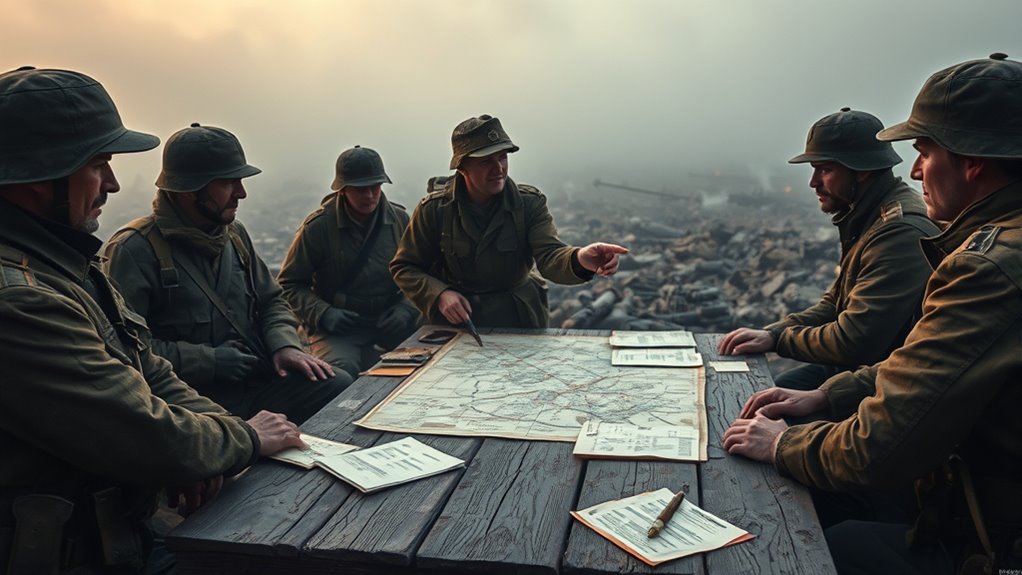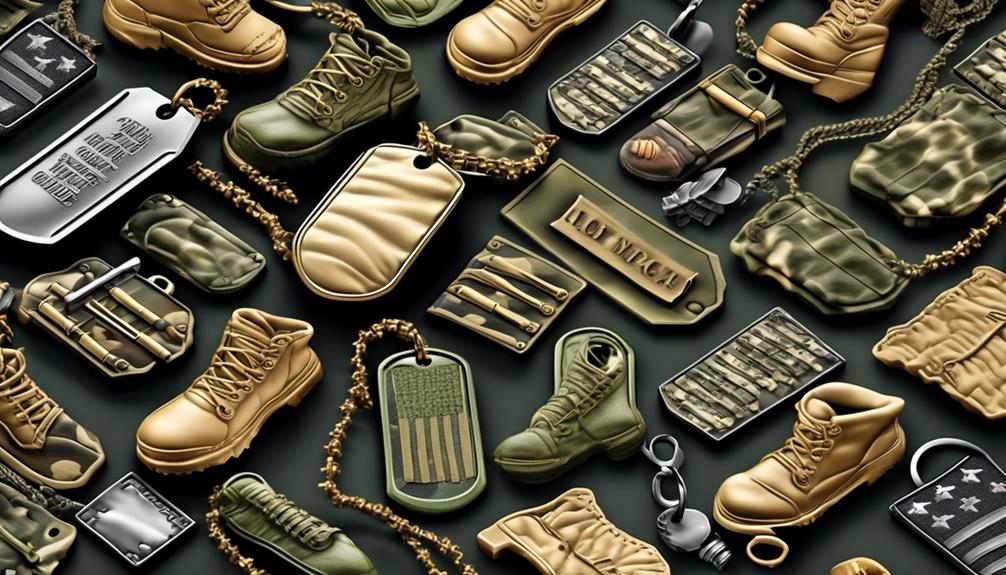Carl von Clausewitz’s idea that “war is the continuation of politics by other means” means you should see war as an extension of diplomatic efforts, not just violence. You understand that military actions are driven by political goals, and warfare reflects ongoing political strategies. Every move and decision in war is influenced by broader political considerations. If you’re curious, you’ll uncover more about how war and politics are deeply connected and how this shapes real-world conflicts.
Key Takeaways
- Clausewitz views war as an extension of political objectives, not an autonomous act of violence.
- Military strategies should serve and advance political goals, maintaining a direct link between politics and warfare.
- Diplomatic efforts continue during war, influencing military decisions and outcomes.
- War is a continuation of political negotiations, reflecting ongoing political processes.
- Understanding conflict requires analyzing the political motives guiding military actions.

Have you ever wondered how war and politics are intertwined? It’s a question that has fascinated strategists and leaders for centuries, and Carl von Clausewitz’s insights remain central to understanding this complex relationship. At its core, Clausewitz believed that war isn’t an isolated act of violence but an extension of political diplomacy. When you look at any conflict, you realize that military strategy isn’t just about battlefield tactics; it’s deeply connected to the political goals that drive a nation’s actions. You have to see war as a tool used by governments to achieve specific diplomatic objectives, which means every military move is influenced by political considerations.
Clausewitz emphasized that military strategy must serve politics, not the other way around. When you’re planning a military campaign, your primary aim isn’t just to defeat the enemy but to advance your country’s political interests. This approach demands that military leaders understand the broader political landscape, including diplomatic relationships, alliances, and negotiations. Your strategic decisions are shaped by what you want to accomplish politically—whether it’s territorial expansion, regime change, or deterrence. In this way, military strategy becomes an extension of political diplomacy, a means to an end rather than an end in itself.
Understanding this connection helps you see why diplomacy remains essential even during wartime. Political diplomacy involves negotiation, persuasion, and maintaining alliances, all of which influence military operations. For example, diplomatic negotiations might limit the scope of military actions or shape the timing and nature of an attack. When diplomacy succeeds, it can prevent a conflict from escalating or bring about a peaceful resolution. Conversely, when diplomacy fails, military force often becomes necessary, but even then, it’s still driven by political aims. Your military efforts aren’t random acts of destruction—they’re carefully aligned with your government’s political strategy.
Clausewitz’s idea teaches you that war isn’t an autonomous event but a continuation of politics by other means. Every military decision you make must consider its political implications, and every diplomatic move influences how battles unfold. This interconnectedness underscores that no military victory is truly separate from political success. Additionally, understanding the role of traditional military strategy can help you better grasp how wars are planned and executed to serve political objectives. The cycle of diplomacy and military action is continuous, each shaping the other. This interconnectedness underscores that no military victory is truly separate from political success. As you analyze conflicts, remember that understanding the political motives behind military campaigns offers clarity—war is fundamentally a political act, executed through military strategy to achieve your nation’s aims.
Frequently Asked Questions
How Did Clausewitz’s Ideas Influence Modern Military Strategy?
You see how Clausewitz’s ideas shape modern military strategy by emphasizing that war is an extension of politics. His focus on strategy evolution encourages you to adapt tactics based on changing circumstances. You also recognize the technological impact, as innovations influence decision-making and battlefield tactics. His concepts prompt you to think critically about the political goals behind military actions, ensuring strategies align with broader objectives in today’s complex warfare environment.
What Are the Criticisms of Clausewitz’s Theory of War?
You might criticize Clausewitz’s theory for overlooking ethical dilemmas that arise during war, such as civilian casualties and moral decisions. Additionally, technological limitations of his time mean his ideas don’t fully address modern warfare’s complexities, like cyber and drone warfare. His focus on traditional combat might oversimplify today’s conflicts, ignoring how ethics and technology shape strategies and outcomes.
How Does Clausewitz Define the Concept of “Total War”?
Think of total war as a storm that engulfs everything in its path. Clausewitz defines it as a exhaustive conflict where all resources and society’s fabric are mobilized, leaving no aspect untouched. It’s an all-encompassing effort to subjugate the enemy completely, blurring the lines between military and civilian targets. In this way, total war becomes a relentless pursuit, transforming the battlefield into a mirror of society’s entire strength.
In What Ways Did Clausewitz’s Background Shape His Views on War?
Your background in military education and personal experiences profoundly shape your understanding of war, much like Clausewitz’s own. His exposure to combat and strategic studies influences his belief that war is an extension of politics. These experiences teach you that war is complex, driven by political objectives, and requires careful planning. They help you see that understanding war’s political nature is vital to developing effective military strategies.
How Applicable Are Clausewitz’s Principles in Contemporary Conflicts?
You find Clausewitz’s principles still relevant today, especially in modern drone warfare and cybersecurity threats. His idea that war is an extension of politics helps you understand how digital conflicts serve political goals. While technology evolves, the core concept that conflicts reflect underlying political motives remains applicable. You should consider how strategic planning and understanding political intent are essential, even in cyber and drone warfare scenarios.
Conclusion
You see, war is like a stormy dance floor where politics leads, and chaos follows. Clausewitz shows you that war isn’t separate from politics but its fiercest expression—a thunderous extension of your decisions and desires. When you understand this, you realize war’s not just about weapons, but about the political tunes you choose to play. So, remember, behind every battlefield, there’s a political rhythm guiding every step, every clash, every victory or defeat.









